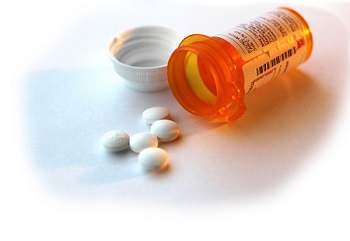
Our pets are so much a part of our families that we treat them as people. We take them with us on vacations. We share our beds with them. We include them in holiday celebrations. All of this means that we really love them. But, we need to remember….dogs and cats are NOT people and treating them as such when it comes to medications is a big NO-NO!
Human and pet illnesses are similar
We recognize that our dogs and cats suffer from many of the same ailments that we do. They sneeze and itch during allergy season. They limp when their joints ache. They experience tummy trouble like we do. Although our pets suffer similar health issues as humans, they cannot be treated with the same medications. Very often human medicines are toxic to pets.
Common Human Medicines to Avoid
When we have a headache, we may reach for the bottle of ibuprofen. Ibuprofen doesn’t require a prescription and is sold over the counter, so it must be safe, right? Not so. It’s toxic when it’s given to a cat or dog. Some pets don’t tolerate ibuprofen and can develop ulcers and gastrointestinal bleeding. Kidney failure can also occur after taking an ordinary NSAID tablet. And acetaminophen is no better. In fact, cats can be quickly poisoned if they take acetaminophen which adversely affects their liver.
With springtime here, many of us will suffer from inhalant allergies. We’ll readily take cold and allergy medications like pseudoephedrine or phenylephrine and usually feel better quickly. But these drugs won’t make our pets feel better. They may elevate the heart rate to dangerous levels and impact organ function.
If your pet seems a little depressed, don’t give him your anti-depressant. While there are some uses for anti-depressants in pets, they can overly sedate them OR overly stimulate them resulting in tremors or seizures.
And don’t assume that “natural” supplements are any safer for pets. Natural hormones and nutritional supplements can also negatively affect the health of pets.
What to do in the case of accidental drug ingestion
Now you know better than to give your pet human medicine. But suppose he takes it without your knowledge. Dogs and cats have been known to scarf up colorful pills that are left within their reach.
If your pet accidentally swallows your medicine, immediately call your veterinary emergency hospital or the Pet Poison Helpline (1-800-213-6680) for 24/7 advice. Nearly 50% of the calls to this animal poison control helpline involve human medications. Keep both numbers handy and pre-programmed in your cell phone so you have help in case of emergency.
To reduce the risk of accidental poisoning, keep human medications out of reach. Also store your medicines separately from your pet’s prescriptions so you don’t grab the wrong bottle by mistake.
We definitely identify our pets as part of the family. We want to share just about everything with our dogs and cats, but we know that keeping our entire family unit healthy means that sharing doesn’t extend to medications!
